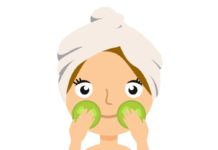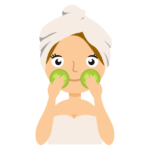Its a major issue we all don’t like to discuss. But its even worse not knowing you have bad breath! Its also called halitosis and its a problem that have affected most of us at one point. It can possibly ruin relationships and it also can be an underlying issue with your overall health. The GOOD NEWS is that you can fix it right away! Be sure to watch our video on 👉How to Fix Bad Breath Instantly 👈 which entails additional information.
This health condition affects about 30% of people around the world. Additional medical terms for this condition include stomatodysodia, fetor oris, and ozostomia. Regardless of the term used, this is the presence of a foul-smelling odor that seems to come from the mouth cavity. The Academy of General Dentistry has stated that more than 90% of cases, the odor originates in the mouth, throat, and tonsils. If you don’t improve after trying all the steps taught by your dentist such as regular brushing 2-3 times a day, daily flossing, and rinsing your mouth with an alcohol free mouthwash then it may be chronic.
This strong foul odor is usually caused by a group of anaerobic, sulfur-producing bacteria that breed beneath the surface of the tongue and often in the throat and tonsil area. They occur naturally in the oral environment and are essential because they assist in digestion by breaking down proteins into amino acids. Proteins are commonly found in food, mucus or phlegm, blood, and in diseased oral tissue. As these bacteria feast on proteins in your mouth, sulfur compounds are released from the back of your tongue and throat. The bacteria excrete waste as hydrogen sulfide, methyl mercaptan, and other odorous and bad tasting compounds known as volatile sulfur compounds. As long as the anaerobic bacteria feed on proteins and excrete volatile sulfur compounds unchecked, your breath will become worse and worse.
What Causes Bad Breath?
Foods: Common foods such as onions and garlic can conjure up those smelly sulfur compounds, while dairy, meat, and fish contain dense proteins which are used as a food source by the anaerobic, sulfur-producing bacteria. More reason to try to have a healthier eating habit since refined and processed sugars also provide a food source for bacteria. Coffee and juices can contribute to this problem because they are acidic and provide these bacteria with an ideal breeding environment.
Dry mouth: The medical term for dry mouth is called Xerostomia. It provides a perfect environment for bacteria to be produced. Long periods of speaking, smoking, drinking alcohol, and snoring are a few common underlying of these causes. Most people experience foul breath in the morning due to lack of saliva production while they sleep. For healthy individuals, food odors are temporary and normal salivary flow will eliminate them within several minutes.
Poor dental hygiene: Are you up to date with your daily and regular hygiene habits? Well, inadequate oral care causes bacterial buildup on the teeth and gums. Teeth cannot shed their surfaces the way skin can, so microorganisms can easily attach to the teeth and remain there for extended periods. If they are not continuously removed by adequate brushing, these bacteria develop into something called biofilm, commonly known as dental plaque. When plaque is allowed to accumulate near the gumline, it will harden and begin destroying teeth and gum tissues due to intense bacterial activity. This leads to gum disease such as gingivitis and periodontitis, which enable proteins from bleeding gums and diseased oral tissue to fuel odor-causing bacteria. Tooth decay and poorly fitting or dirty dentures can also contribute to this problem.
Illness and disease: According to studies, about 10% of all halitosis cases are caused by certain illnesses because their is a interconnection. Individuals who suffer from diabetes, lung disease, kidney disease, cancer, liver disease, respiratory tract infections, or metabolic disorders often experience chronic foul breath due to dry mouth. Sinusitis, pneumonia, bronchitis, postnasal drip, and polyps affect the airways and may also contribute to the problem. Other common illnesses associated with bad breath include nasal odor and tonsil stones, yeast infections of the mouth, and gum disease. Certain drugs such as antidepressants, high blood pressure medications, and antihistamines can factor into dry mouth because they reduce saliva production.
Solutions to Bad Breath
There are a few things you can do yourself to minimize halitosis by practicing a few, simple and self-care techniques which you can do at home.
- Advanced oral care products: Use oral care products such as mouthwashes and toothpastes that have been shown to be effective in fighting bad breath.
- Proper oral care: Brush and floss your teeth at least twice a day. Be sure to get a toothbrush with soft bristles (as to not damage tooth enamel or gums) and also use fluoride toothpaste. Brushing and flossing helps to remove any food and plaque which can be used as a fuel source by the anaerobic, sulfur-producing bacteria that are at the root of this problem.
- Stimulate your salivary flow: Prevent dry mouth with chewing gum, lozenges, or mints that are sugar free. Look for Xylitol, a non-sucrose sweetener, which in recent years has been shown to have anti-cavity properties.
- Eat fibrous fruits and vegetables: One of the best ways to remove bacteria in the mouth is to eat an apple a day. It helps moisten the mouth, too.
- Brush your teeth occasionally with baking soda: The bacteria that cause bad breath thrive in an acidic oral environment. Brushing your teeth with baking soda helps neutralize excess acids found in the oral cavity.
⚡️5 Home Remedy Tips for Bad Breath⚡️
1. Cinnamon Mint Mouthwash: Ingredients=>Cinnamon and peppermint oil fight bad breath. Sea salt strengthens the gums and prevents plaque. Flavor=>Cinnamon Mint
2. Auromere Ayurvedic Mouthwash: Ingredients=>Neem and peel bark clean the mouth and reduce gum inflammation and Indian liquorice and clove freshen breath. Pomegranate and rose apple prevent bleeding gums. Flavor=>Mint
3. Fresh Breath Mouthwash: Ingredients=>Tea tree oil and organic aloe vera soothe the gums and grapefruit seed extract cleans and disinfects the mouth . Flavor=>Mint
4. All Natural Antigingivitis Rinse=>Peppermint and sage oils eliminate bad breath while preventing plaque and gingivitis. Aloe vera and vegetable glycerin soothe gums. Flavor=>Peppermint Sage
5. All Purpose General Mouthwash: Ingredients=>1 lime, 1 tablespoon of baking soda, and 1/2 cup of water. Directions=>Mix all contents and stir. Have this in the mornings and *gargle only*. You’ll notice a breath improvement within days! This will save you money and no need to buy commercial products that will only mask the issue.
So do yourself a favour by following these good habits. Ensure you keep up to date on your regular oral hygiene, what foods you eat, take care of your health, and by doing your regular check ups with your dentist. So, follow the suggestions I provided as it will help keep your bad breath away and keep your spouse closer to you!!


























